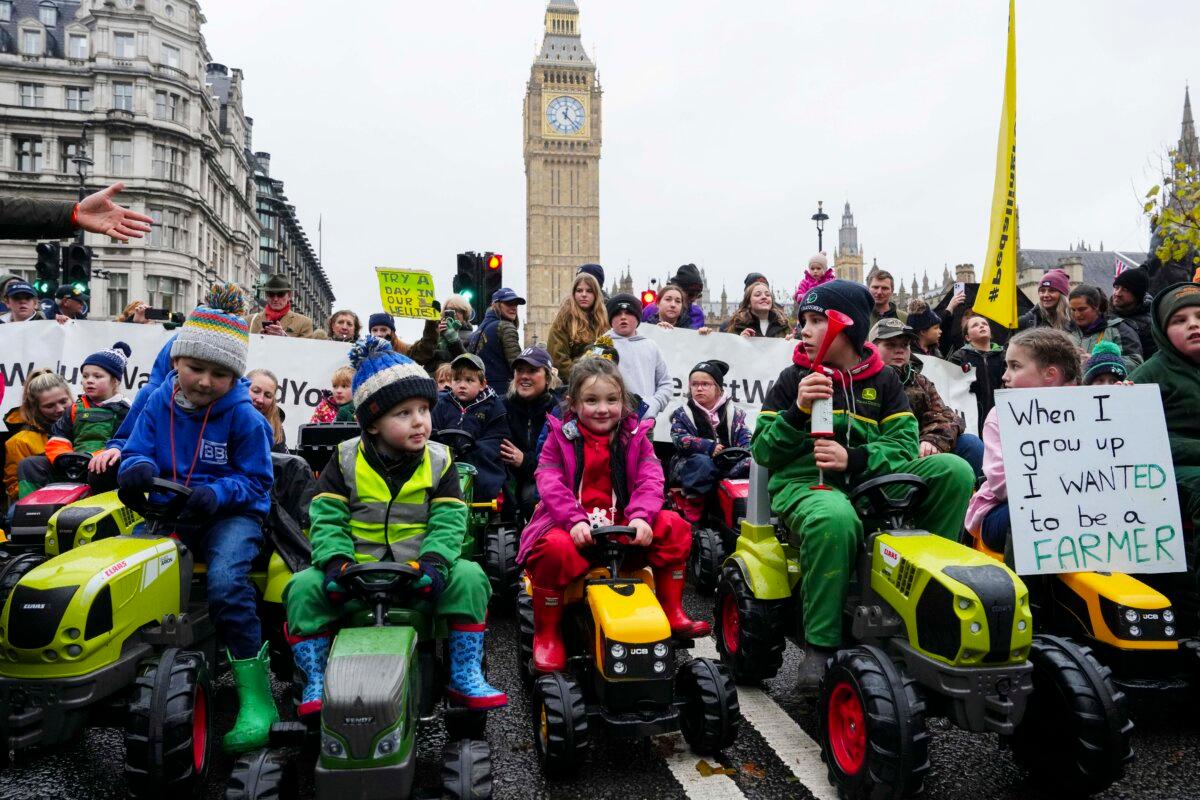A cross-party committee of MPs has called on the government to delay changes to inheritance tax for farms until 2027.
Efra said the delays would also allow “vulnerable farmers” more time to seek professional advice.
From April 2026, agricultural assets worth over £1 million will be subject to a 20 percent inheritance tax rate. This is half the usual 40 percent rate, but farms were previously exempt from inheritance tax.
In its report, Efra raised concerns that the plans laid out in last year’s Autumn Budget were made without a consultation, impact assessment, or affordability assessment.
“The lack of proper evaluation of the impact of these changes means that the scale and nature of its impact on family farms, land values, tenant farmers, food security and farmers in the devolved administrations is disputed and unclear. This comes with a considerable risk of negative unintended consequences,” the group of MPs said.
As such, the reforms “threaten to affect the most vulnerable,” including those who are older and whose farming is less profitable.
Alternatives
The Labour government had said it brought in the change to stop wealthy investors attempting to avoid paying inheritance tax by buying farmland, which also impacts the price and availability of land for new entrants into farming.The committee said that while it agrees in principle with reforming APR and BPR to “close the loophole,” experts had proposed other methods to reform taxes which the government should consider.
These include increasing the tax-free APR/BPR combined cap to £20 million, but introducing a predetermined “clawback period,” during which time if any land is sold after being passed on, charges will be applied.
Closure of SFI ‘Affected Trust’
Efra also criticised the sudden closure of the Sustainable Farming Incentives (SFI) programme, which it said “affected trust in the Government and has left many farmers without the funding they expected and at risk of becoming unviable in the period before the next scheme is introduced.”The SFI offered financial incentives to farmers to adopt environmentally-friendly land management practices aimed at improving soil health and water quality and supported actions that promote biodiversity, such as encouraging bees and other pollinators. There are currently around 37,000 SFI agreements in place.

Addressing MPs on Monday, minister for food security and rural affairs Daniel Zeichner blamed a message in the application system “shown in error,” which promised that Defra would give farmers six weeks’ notice if the department needed to close applications.
Rebuild Trust
Efra committee Chairman Alistair Carmichael called on the government to “take our recommendations seriously” in a bid to rebuild trust and confidence in the farming sector.
The Epoch Times contacted the Treasury for comment, but the department did not respond.
A spokesperson had said: “With 40 percent of agricultural property relief going to the 7 percent of wealthiest claimants, we made the decision to ensure the relief is fiscally sustainable.
“Around 500 claims each year will be impacted and farm-owning couples can pass on up to £3 million without paying any inheritance tax—this is a fair and balanced approach.”






